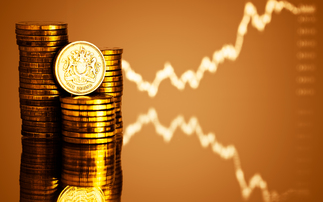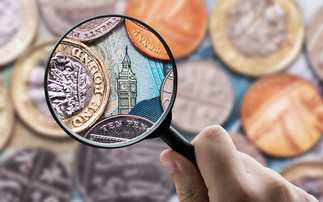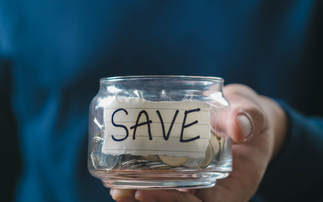Aviva Investors' Abigail Herron says GDP fails to measure the impact of economic growth on the planet's finite environmental resources
One of the most serious problems with GDP is that it fails to measure the impact of economic growth on the planet's finite environmental resources. As economist Kenneth Boulding once put it: "Anyone who believes that exponential growth can go on forever in a finite world is either a madman or an economist." Some economists have indeed argued it is possible to 'de-couple' economic growth from environmental damage.
The International Resource Panel (IRP) of the United Nations Environment Programme points to evidence that advanced economies tend to achieve more growth at a relatively lower environmental cost - even if they continue to increase their use of resources in absolute terms - as they become more technologically sophisticated and efficient.1
The ongoing shift to green energy contributes to this kind of ‘relative' decoupling. In an article for the journal Science in 2017, Barack Obama observed that the US economy grew more than 10 per cent over the course of his presidency, even as carbon emissions from the energy sector fell by 9.5 per cent, thanks to a transition to greener energy sources.2
While this transition is to be welcomed, it should be noted that solar panels and wind turbines still use up finite environmental resources such as land and materials. And some countries that appear to be decoupling, such as Germany and Japan, are often ‘exporting' their resource consumption by making use of goods that have been produced abroad using major quantities of water and minerals. Overall, advanced economies still consume far more natural resources than developing ones: the IRP has noted that the average citizen in a developed economy such as Canada consumes 25 tonnes of minerals, ores, fossil fuels and biomass per year, compared with four tonnes for the average citizen in India.3
With the sustainability question in mind, some experts have called for alternative measures of economic welfare to replace the emphasis on GDP. Tim Jackson, professor of sustainable development at the University of Surrey and an adviser to Aviva Investors, framed his seminal 2009 report Prosperity Without Growth around the evidence that, beyond a certain point, growth does not increase human well-being4. Diane Coyle calls for a shift of focus towards ‘access' to economic benefits, with the preservation of ‘natural capital' a key concern. Meanwhile, Jonathan Haskel argues the health of the environment could be encompassed within a reformed GDP framework, so that planting a forest counts as an investment in ‘environmental capital' while polluting the Great Barrier Reef subtracts from it.
The New Economics Foundation's Happy Planet Index is one of the first global measures of sustainable wellbeing. It captures global data on wellbeing, life expectancy, and ecological footprint to reveal an index of which countries are most efficient at producing long, happy lives for their citizens, while maintaining the conditions for future generations to do the same. 5
As there is not yet any consensus on how to reform or replace GDP, it seems likely that the debate over the compatibility of economic growth and environmental welfare will run and run.
For further information on our range of funds, please visit our website or contact your usual Relationship Manager
Website: www.avivainvestors.com
Tel: 020 7809 6000*
*Calls may be recorded for training and monitoring purposes, and to comply with applicable law and regulations.
1. ‘Decoupling natural resource use and environmental impacts from economic growth,' UNEP, 2011
2. ‘The irreversible momentum of clean energy', Science, June 2017
3. Op. cit.
4. Tim Jackson, Prosperity without growth: Economics for a finite planet (Routledge, 2009)
5. happyplanetindex.org/
Important information
This document is for professional clients and advisers only. Not to be viewed by or used with retail clients.
Except where stated as otherwise, the source of all information is Aviva Investors Global Services Limited (AIGSL). As at 25 September 2018. Unless stated otherwise any views and opinions are those of Aviva Investors. They should not be viewed as indicating any guarantee of return from an investment managed by Aviva Investors nor as advice of any nature. Information contained herein has been obtained from sources believed to be reliable, but has not been independently verified by Aviva Investors and is not guaranteed to be accurate. Past performance is not a guide to the future. The value of an investment and any income from it may go down as well as up and the investor may not get back the original amount invested. Nothing in this material, including any references to specific securities, assets classes and financial markets is intended to or should be construed as advice or recommendations of any nature. This material is not a recommendation to sell or purchase any investment.
In the UK & Europe this material has been prepared and issued by AIGSL, registered in England No.1151805. Registered Office: St. Helen's, 1 Undershaft, London, EC3P 3DQ.
RA18/0954/23092019










